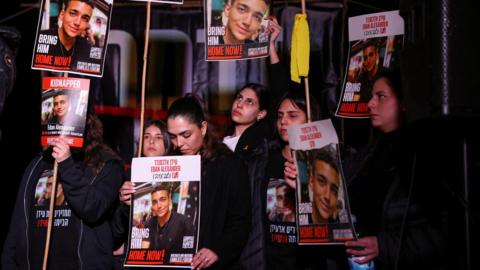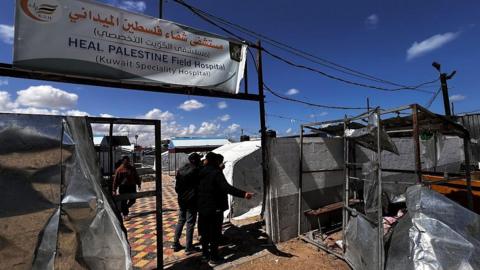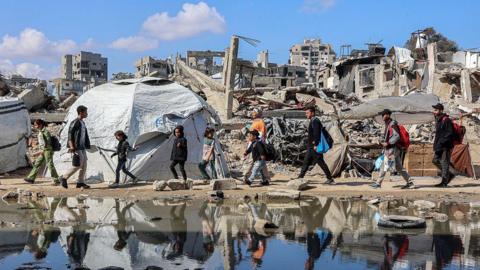The UN secretary general pointed out that under international humanitarian law, an occupying power had obligations to ensure relief for the civilian population.
Recent Israeli military evacuation orders have led to wide-scale displacement of Gaza's 2.1 million population.
The UN says about 70% of the strip is currently under displacement orders or in "no-go" zones," where the Israeli authorities require humanitarian teams to coordinate their movements.
In Israel, polls suggest that a majority of Israelis back a Gaza ceasefire deal and - when it comes to their countries' stated war goals - prioritise bringing home the hostages over dismantling Hamas' governing and military capabilities.
However, Netanyahu is backed by hard-line religious ultranationalist parties who have threatened to collapse the government if he ends the war.
Israel signed onto a ceasefire deal in January, leading to the release of 33 hostages - 25 of them alive - in exchange for some 1,800 Palestinian prisoners in the first six-week stage.
It then largely refused to begin talks on the planned second stage which was supposed to lead to a full withdrawal of Israeli forces and a complete end to fighting.
In the past week, Israeli military reservists and veterans have signed several open letters condemning the ongoing war and questioning its priorities.
There has also been criticism of the IDF's chief of staff and air force commander for sacking air force reservists who signed an original statement.
This has coincided with rising frustration among reservists and their families over the cost of ongoing reserve duty along with the government's failure to draft ultra-Orthodox Jews despite the IDF facing shortages of combat soldiers.



